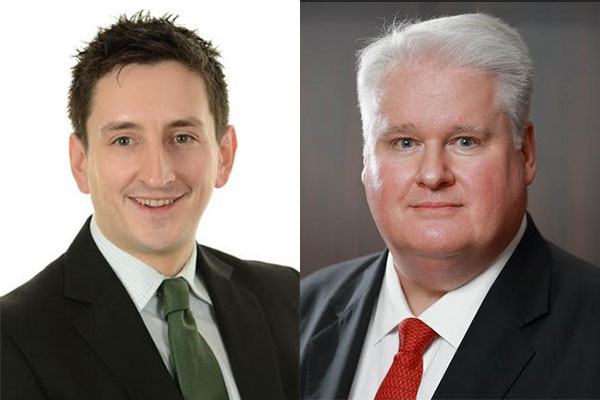
Tom Rogers and Michael Armstrong
GCC’s GDP to accelerate to 2.8pc next year: ICAEW
DUBAI, November 23, 2017
The GDP of the GCC is expected to grow from just 0.3 per cent in 2017 to 2.8 per cent next year, while the same in the wider Middle East will accelerate from 1.4 per cent in 2017 to 3.2 per cent next year, a report said.
Several economies in the Middle East, particularly those in the GCC, are transitioning towards a “new normal” in 2018, allowing spending to start gradually recovering, added the “Economic Insight: Middle East Q4 2017” from ICAEW, a world leading professional membership organisation.
However, the accountancy and finance body says several risks remain to growth in the region, including those from politics and security.
The report, produced by Oxford Economics, ICAEW’s partner and economic forecaster, says public finances now look to be on a more sustainable path in most economies in the GCC thanks to three main factors: the upcoming Value-Added Tax; the important social change in Saudi Arabia with the lifting of the ban on women driving; and as a result of a period of emergency austerity which saw public spending cut by almost 20 per cent from 2015-2017 at the GCC level.
With Opec-plus oil production cuts likely to be maintained through 2018, and reversed in 2019, GDP growth is expected to pick up to around 4 per cent in both the GCC and wider Middle East in 2019. Within this, GCC oil GDP is forecast to rebound from a 2.3 per cent contraction in 2017 to growth of 1.7 per cent in 2018 and around 1 percentage point stronger in 2019. Growth in the GCC non-oil sector is forecast to pick up from 2.4 per cent in 2017 to 3.7 per cent in 2018 and 4.7 per cent the year after.
Tom Rogers, ICAEW economic advisor and associate director of Oxford Economics, said: “Economic growth prospects of the Middle East countries, particularly the GCC, are projected to improve in 2018 and the years after. But the political and security risks remain high and could limit or delay the recovery in the region.”
Saudi Arabia is on the right track
2018 will be a key year of transition for Saudi Arabia in several contexts. For the first time, Saudi citizens will pay VAT on the goods and services they buy, Saudi women will be permitted to drive, and private (and foreign) investors may be able to take a stake in Saudi Aramco. The Kingdom is at the start of a potentially decades-long process of economic diversification and social change.
Additionally, the expected increase of Brent crude to an average of $55 in 2018 and a dollar or two higher the following year, will offer some support to public spending and growth. In this context, Saudi Arabia is expected to play a key role in securing an extension of the Opec-plus deal at the November 30th meeting.
Away from the oil sector underlying business conditions remain relatively positive. Private bank deposits have also started to recover through the summer months, providing some support for spending power into 2018. More positively, plans to permit women to drive could save some households as much as $1,000 per month – particularly where women use a driver or taxis to get to their workplaces.
However, the relaxation on women driving seems unlikely to have an immediate impact on female employment. At 20 per cent, female labour force participation is low even by regional standards (UAE leads the way at 42 per cent, compared to 50-60 per cent in western economies), and the government aims to raise this to 30 per cent by 2030. To do so, Saudi Arabia will need to narrow the gap in wage expectations between Saudi workers and expatriates.
The Crown Prince’s decision to return the country to “a moderate Islam open to the world” and to tackle corruption are positive moves. As are the two recent flagship policy initiatives - a major tourism zone in the Red Sea region, and an industrial mega city spanning three countries (Saudi Arabia, Jordan and Egypt).
Both will draw heavily upon inward investment and expertise, but care needs to be taken to ensure the enforcement of anti-corruption measures supports, rather than inhibits, the confidence of overseas investors and trade partners in doing business in the Kingdom.
Michael Armstrong, FCA and ICAEW regional director for the Middle East, Africa and South Asia (MEASA), said: “Saudi Arabia is moving in the right direction with regards to economic reforms. There is clearly increasing momentum behind the shift towards a more market-driven economy in Saudi Arabia. But this shift will take some time and for the coming years the economy will remain heavily influenced by traditional growth drivers – the oil sector and the importance of government spending.”
The Saudi Arabia economy is expected to pick up from a 0.3 per cent contraction in 2017 (largely a result of lower oil output) to record growth of 2.3 per cent in 2018. As oil output is restored to pre-cut levels in 2019, GDP is expected to grow 3.8 per cent. But in the absence of more ambitious reform efforts in the coming couple of years, this is likely to be the speed limit for growth. - TradeArabia News Service







